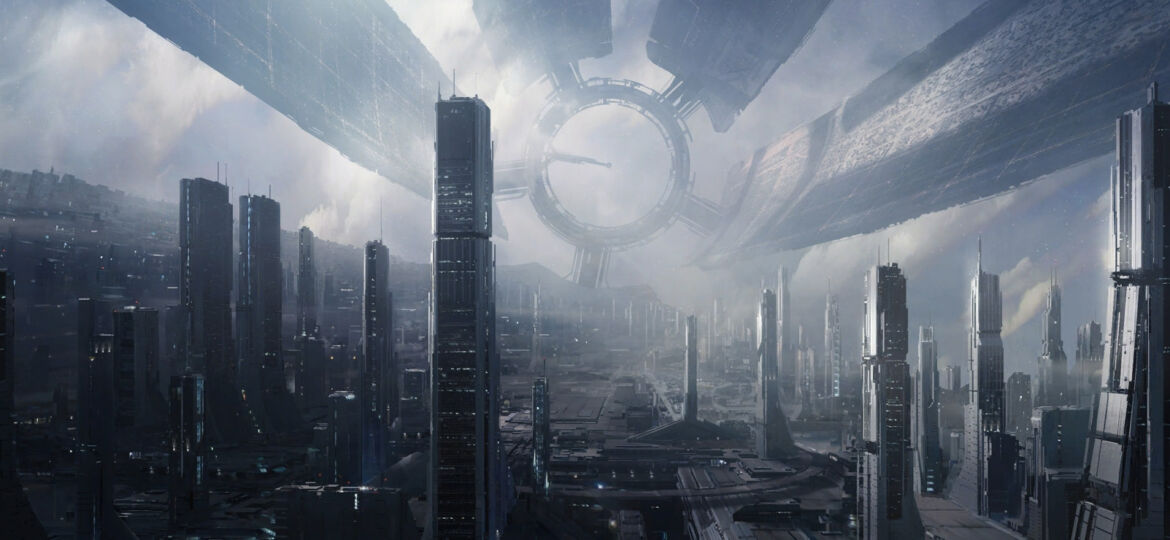
As humanity nears its goals of becoming an interplanetary species it’s inevitable one day that a new nation will take form
In the wake of multiple announcements from private and public bodies alike about colonising the Moon and Mars, beginning in 2017, a team of scientists and legal experts have formally unveiled proposals for the “first nation state in space” – something that would inevitably happen at some point in the future as we increasingly reach for the stars. They say the move will foster peace, open up access to space technologies and offer protection for citizens of planet Earth.
Dubbed “Asgardia” after one of the mythical worlds inhabited by the Norse gods, the team say the new nation will eventually become a member of the United Nations, with its own flag and anthem devised by members of the public through a series of competitions.
According to the project website, Asgardia “will offer an independent platform free from the constraint of a land-based country’s laws. It will become a place it in orbit which is truly ‘no man’s land’”.
Initially, it would seem, this new nation will consist of a single satellite, scheduled to be launched next year, with its citizens residing firmly on terra firma.
“Physically the citizens of that nation state will be on Earth; they will be living in different countries on Earth, so they will be a citizen of their own country and at the same time they will be citizens of Asgardia,” said Igor Ashurbeyli, the project leader.
“When the number of those applications goes above 100,000 we can officially apply to the UN for the status of state,” he added.
According to the project website “Any human living on Earth can become a citizen of Asgardia,” with the site featuring a simple registration form and at the time of writing more than 1,000 individuals had already signed up.
When asked why people should register to become citizens of Asgardia, Ashurbeyli said: “I do believe that as soon as this country becomes a part of the UN family, citizenship of that country will be really quite prestigious.”
A Russian businessman and nanoscientist who also founded the Vienna-based Aerospace International Research Center and is currently chairman of Unesco’s Science of Space committee, Ashurbeyli says the project aims to open up a conversation about regulations surrounding space activity.
At present, the Outer Space Treaty that underpins international space law states that responsibility and liability for objects sent into space lies with the nation that launched them.
But the project team claim that Asgardia will set a new precedent, shifting responsibility to the new “space nation” itself.
“The existing state agencies represent interests of their own countries and there are not so many countries in the world that have those space agencies,” said Ashurbeyli.
“The ultimate aim is to create a legal platform to ensure protection of planet Earth and to provide access to space technologies for those who do not have that access at the moment.”
This echoes the UN’s own sentiments recently where the UN unveiled their plans to give the UN a presence in space.
Christopher Newman, an expert in space law at the UK’s University of Sunderland, said the project reflects the fact that the geopolitical landscape of space activity has changed since the Outer Space Treaty was drawn up in the 1960s.
But, he added, it was not clear how Asgardia would fit into current international regulations, with the project facing significant hurdles, from getting UN recognition for Asgardia, to issues around liability.
“It is an exciting development in many ways because it will be interesting to see how this goes,” said Newman.
“But there are formidable obstacles in international space law for them to overcome. What they are actually advocating is a complete re-visitation of the current space law framework.”
Ashurbeyli says the hope is that Asgardia will eventually become an official “launch state” but, he admits, at least in the short term cooperation from other countries will be required.
While the project’s proposals remain vague, the vision for Asgardia is lofty. The team say that one of their early plans is to create “a state-of-the-art protective shield for all humankind from cosmic, manmade and natural threats to life on earth.”
Such threats, they say, include the dangers posed by space junk, and even asteroids. But, at present, details remain hazy about what form such a shield could take. And while the project does not currently include plans to set up an Asgardian settlement in space, Ashurbeyli believes life beyond Earth will be vital to the future of humankind – a sentiment echoed by Elon Musk and others.
While at first the proposals might seem fanciful – even comical what they do do is give substance to a topic that will inevitably raise its head in the near future – after all, do you really think that the global collective of individuals living on the Moon or Mars will always want to call themselves “Americans” or “Brits” or “Chinese”? At some point it’s likely they’ll want to create their own sovereign identity.
















